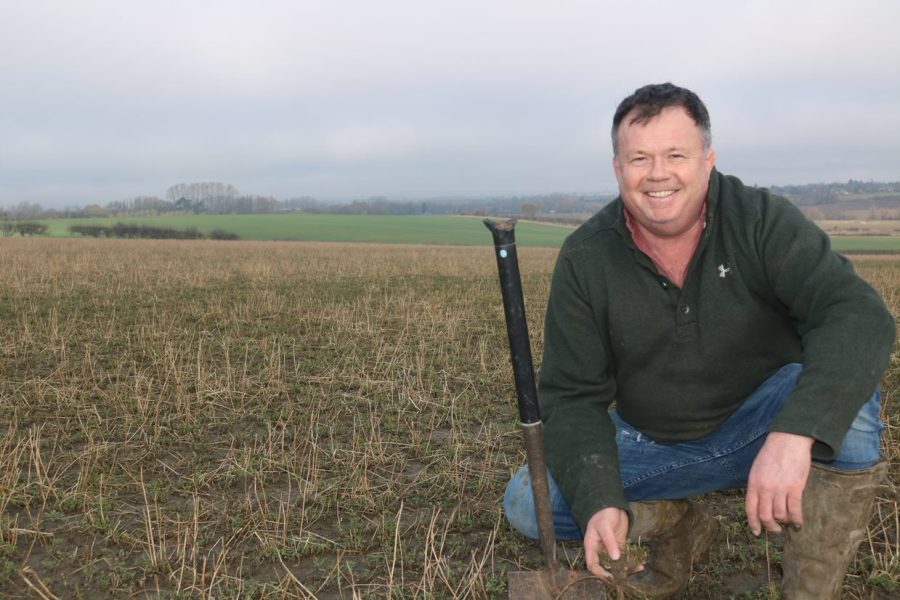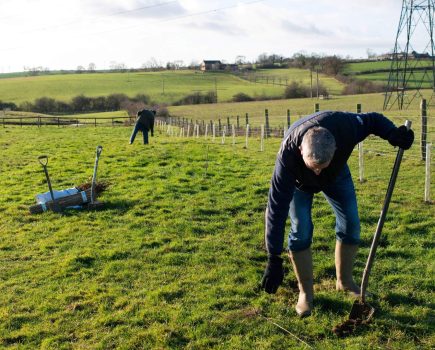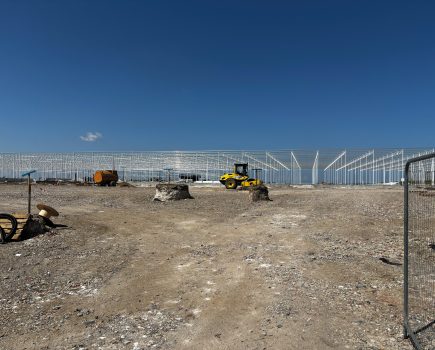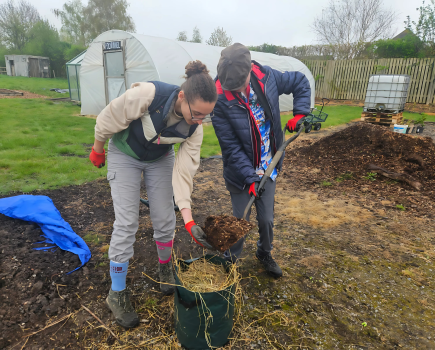Increasing corporate demand for high quality carbon projects reports Carbonology.
“The government’s current consultation on a land-use framework is potentially quite exciting,” explained farmer Doug Wanstall, who has trialled a range of restorative systems at Bank Farm in Kent. “We just need to think about land differently and how it can solve multiple problems.”
The UK’s Net Zero economy has grown by 10% in the past year*. As more companies consider offsetting to further reduce their carbon footprint, this could potentially create greater opportunities for farmers delivering high quality carbon projects. The government’s consultation on land-use strategy ends on 25thApril. If a more joined-up approach is considered it could help finance a ‘just transition’ where all parties benefit according to Doug.
Sustainable food production
“We’ve always believed that the same land can deliver not just food, but also wider environmental benefits,” said Doug, who is also co-founder of Beyond Zero, an organisation that is helping farmers and landowners transition to regenerative systems. It held an open day at Bank Farm on 1 May 2025 in partnership with the carbon standards specialists Carbonology.
“The first obligation for all businesses is to have a credible carbon reduction plan and reduce their own emissions,” he said. “For many it won’t be possible to get completely carbon neutral so they will need to buy credits to offset their residual emissions.
“Farmers are in a unique position as not only can they reduce their emissions, but they can also actively remove carbon from the atmosphere into habitats – through improving soil, regenerative agriculture, and planting hedgerows and trees.
“I think we drastically underestimate how much opportunity there is in soil. With interventions they become deeper and more fertile. Our projects are getting some amazing numbers, year after year. Some farmers have increased their soil organic matter by about half a percent per year.”
Sustainable income for farmers
Beyond Zero has taken a science-based approach to develop its framework, which aims to both build resilience in farm businesses and deliver high quality carbon projects for offsetting that are trusted by investors and the markets. It has about 15 approved projects, covering 300,000 hectares and a further 90 in the pipeline.
Green finance linked to carbon reduction
Corporate demand for high integrity carbon projects is increasing, driven by the need for businesses to be more transparent with their stakeholders and the opportunity to access ‘green finance’ if they have a credible carbon reduction programme.
Melanie Blackmore, co-founder of Carbonology, specialists in carbon standards verification, explained: “Sustainability is becoming integral to company performance. Increasingly we are seeing banks and investment institutes asking for evidence that a company has a credible carbon reduction plan.
“In some cases, they give preferential terms for loans, but in other cases a bank will refuse finance if the company is considered a high climate risk.
“Independently verified carbon reporting can also improve ranking on voluntary disclosure platforms such as EcoVadis and CDP, indexes increasingly being used by investors for valuations.”
Science and dirty boots
Beyond Zero has worked with Cranfield University to develop its soil analysis protocol. Its UK Carbon Code, used to verify projects, is gaining traction with farm clusters.
For each farm project, Beyond Zero creates baselines to work out the emissions and opportunities for carbon removal, with the aim to get the farm business to beyond zero as quickly as possible.
Once this has been achieved and the project audited, and approved, it is registered with the UK Carbon Code Registry. The project can then issue credits annually based on the net balance between their emissions and carbon removals – one credit for each one tonne of CO2 removed from the atmosphere above net zero.
Doug estimates that the current projects are generating about 450,000 credits a year.
Each project is monitored through an intensive soil sampling protocol and remote satellite imaging. There is still much debate about the accuracy of testing and the techniques to use, but Doug says the key is to be consistent with the technology and process.
Diversify and thrive
Doug’s own farm in Kent is used as a model farm to show what is possible. He has experimented with growing sterile variants of Paulownia, a fast-growing tree from South-East Asia that produces hardwood. The UK currently imports 80% of its timber and Paulownia can grow to the size of a 40-year-old oak in just ten years – and can then regenerate.
More information about the land use consultation can be found at: consult.defra.gov.uk/land-use-framework/land-use-consultation/
For more like this, sign up for the FREE South East Farmer e-newsletter here and receive all the latest farming news, reviews and insight straight to your inbox.







